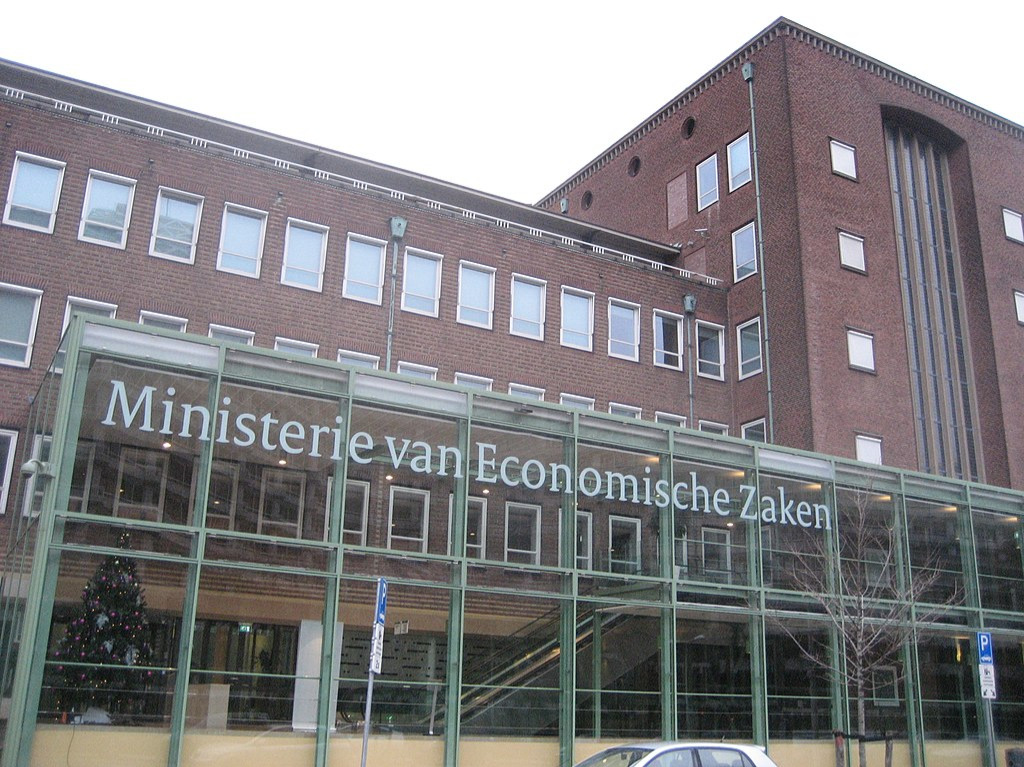
On October 12, the Dutch government, citing concerns about technology transfers, announced it had taken control of Chinese-owned Nexperia, a commodity microchip maker. The Netherlands invoked for the first time the Availability of Goods Act to assume management of a company.
Finally, a government is moving to deny China the ability to pillage a foreign technology business. Other nations should follow Amsterdam's action.
Wingtech, the 100% owner of Nexperia, called Holland's actions "excessive interference driven by geopolitical bias." The Chinese company also complained of a "cloaked power grab."
The Chinese foreign ministry immediately weighed in too. "Let me stress that China always opposes overstretching the concept of national security and taking discriminatory moves that target companies from certain countries," said Spokesperson Lin Jian at his regular press conference on the 13th. "The relevant country should uphold market principles and refrain from politicizing trade issues. China is firmly resolved in defending its own legitimate and lawful rights and interests."
The Dutch takeover came not a moment too soon. As Bloomberg reported, this year Beijing offered to invest at least $1 trillion in America.
Chinese officials attached two conditions to their offer. "The first required that the U.S. loosen its scrutiny of investments originating from China," Bloomberg reported. "The second: that any Chinese factories built in the U.S. get a break on tariffs for any inputs they imported."
The Chinese proposal, if accepted, would amount to a significant break from the trend in America of tightening restrictions on Chinese investments. The resistance to China's money was symbolized by the White House's robust America First Investment Policy memorandum, issued in February.
Trump is now moving in a different direction, however, publicly boasting about obtaining large investment commitments from the EU ($600 billion), Japan ($550 billion), and South Korea ($350 billion).
Will he be willing to accept Chinese money as well?
Taking more of China's money is an especially bad idea. With Chinese cash comes Chinese influence, and China has far too much of it in the U.S. already.
"If there is anything America doesn't need," trade expert Alan Tonelson told Gatestone "it is a much bigger footprint by Chinese entities inevitably controlled by China's Communist Party."
In China's system, even privately owned entities must comply with Communist Party directives to share whatever technology they have with the People's Liberation Army, pursuant to Xi Jinping's doctrine of "military-civil fusion."
"China's reported investment offer can only mean that the tariffs and export controls — however threadbare the latter too often have been — are damaging China's economy and slowing its technological progress, especially in the military sphere," said Tonelson, who blogs at RealityChek.
That brings us back to Nexperia. Although the Dutch government is not confiscating shares of the company, its assumption of management functions will either slow or stop the leakage of technology to China.
China's unofficial propagandists and others are accusing the Dutch government of, among other things, buckling under pressure from Washington. "This didn't happen in a vacuum — it coincides perfectly with Trump's new '50% rule,' which drags every subsidiary of a Chinese parent company onto America's Entity List," posted @BarrettYouTube, a Shenzhen-based observer, on X, discussing the Nexperia takeover. "It looks a lot like Europe is just following Washington's lead yet again."
On September 29, the U.S. Commerce Department issued a rule automatically adding to its Entity List all subsidiaries owned 50% or more by companies already on the list. No American may sell goods or services to listed companies without a license. Commerce added Wingtech to the Entity List in December 2024.
The Economic Affairs Ministry of the Netherlands stated that the timing of its action was "purely coincidental" and that, in the words of Reuters, "there was no U.S. involvement in its decision regarding Nexperia."
The Dutch government said it was concerned about the possible loss of "crucial technological knowledge," adding, "The loss of these capabilities could pose a risk to Dutch and European economic security."
Amsterdam had every right to be concerned. It appears that Wingtech was planning to break apart Nexperia and transfer assets back to China.
Taking foreign technology is at the core of China's plans to lead the world. Xi Jinping's Made in China 2025 program poured money into ten areas, including semiconductors. China has made progress in the area during the decade, but many believe the results have not been commensurate with the resources dedicated.
China, in short, still needs foreign technology, and, short of theft, purchasing it would be the easiest and least expensive way to obtain it.
It is no surprise, therefore, that Beijing is seeking to flood the U.S. with cash, especially if it gets the Trump administration to relax export controls.
America does not need more money to continue the development of leading technologies. In the race to dominate tech, the U.S. will make the fastest progress by keeping Chinese companies as far away from its shores as possible. The Netherlands, with its ejection of China's managers from Nexperia, just showed Washington what to do next.
Gordon G. Chang is the author of Plan Red: China's Project to Destroy America, a Gatestone Institute distinguished senior fellow, and a member of its Advisory Board.


